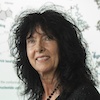
- Elfi Kraka
- Department of Chemistry
- Southern Methodist University
- Dallas, Texas 75275, USA
- Email: ekraka [at] smu.edu
| Professional Preparation | |||
|---|---|---|---|
| University of Köln, Germany | Chemistry | B.S. Chemistry | 1976-1981 |
| University of Köln, Germany | Theoretical Chemistry | Dr. rer. nat summa cum laude | 1982-1984 |
| Argonne National Laboratory | Theoretical Chemistry | Post-doc | 1985-1987 |
Appointments
- 1990: Assistant Professor of Theoretical Chemistry, Göteborg University, Sweden
- 1993: Associate Professor of Theoretical Chemistry, Göteborg University, Sweden
- 1997-2005: Full Professor and Administrative Chair of Theoretical Chemistry, Göteborg University, Sweden
- 2005-2009: Professor and Chair of the Department of Chemistry at the University of the Pacific, Stockton, CA
- 2009-2023: Chair of the Department of Chemistry at Southern Methodist University, Dallas, TX
- 2009-Present: Professor of Chemistry at Southern Methodist University, Dallas, TX
- 2017-Present: Director of the Computational and Theoretical Chemistry Group (CATCO) at Southern Methodist University, Dallas, TX
- 2023-Present: Director of Graduate Studies in Theoretical and Computational Chemistry at Southern Methodist University, Dallas, TX
Publications and Conferences:
ca. 270 peer-refereed articles and ca. 180 invited lectures worldwide.Synergetic Activities
- Professional Service Member of the scientific board of the World Association of Theoretical and Computational Chemist (WATOC), since 2005; Member of the editorial boards of the Journal of Computational Chemistry, the International Journal of Quantum Chemistry, Molecular Physics, the International Journal of Molecular Sciences; Member of the Academic Technology Council at SMU since 2015; member of SMU’s Center for Scientific Computing since 2010
- Journal Reviewer for ca 15 international journals.
- Grant Reviewer for the National Science Foundation, NSF; the National Science Foundations of Sweden, Norway, Germany, China, Chile, and Brazil
Teaching and Education
- Development and teaching of more than 60 diverse courses including general chemistry, quantum chemistry, applied computational chemistry, molecular modeling and computer assisted drug design, many body perturbation theory, Coupled Cluster theory, density functional theory, quantum chemical calculation of molecular properties, mathematics for chemists, statistics for chemists, Symmetry and Group theory, use of computers in sciences, chemical communication in computational chemistry, advanced scientific writing, Latex for chemists, scientific programming in FORTRAN.
- Development of a novel PhD program in Theoretical and Computational Chemistry at SMU.
- Development of an educational program in computer assisted drug design in consultation with Astra Zeneca, Sweden and based on her experience working in R&D at the Bayer AG, Germany.
Total number of graduate students and post docs advised: 60
Current seniors, postdocs and graduate students under supervision: i) Dr. Marek Freindorf; Dr. Yuvraj Dangat, Dr. Bhaskararao Bangaru ii) PhD students: Barbara Peluzo, Mateus Quintano, Ayesh Madushanka, Hunter LaForce, Juliana Antonio, Filippo Bodo, Kevin Fleming, Dhanuddhara Gamage
External Grants
- Regular grant support by the Swedish National Science Foundation (four 3-year grants + some smaller grants), awarded 1993-2005.
- Nanotechnology Grant of the University of the Pacific, co-PI, awarded July 2006, $500,000, running time 3 years.
- NSF Grant, CHE 071893, PI, Elucidation of Reaction Mechanism with the Unified Reaction Valley Approach: Toward the Control of Chemical Reactions, awarded 08/09/2007, $340,000.00, running time 3 years.
- NSF Grant, CHE 1152357, PI, Elucidation of Reaction Mechanism with the Unified Reaction Valley Approach II: Homogenous Catalysis, awarded 07/01/2012, $360,000.00, running time 3 years.
- NSF Grant, CHE 1464906, PI, Elucidation of Reaction Mechanism with the Unified Reaction Valley, Approach III: Homogenous Catalysis and beyond, awarded 07/01/2015, $400,000.00, running time 4 years.
- NSF Grant, CHE 2102461, PI, The Local Mode Analysis - Decoding Chemical Information from Vibrational Spectroscopy Data, awarded 08/01/2021, $498,000.00, running time 3 years.
- DSF Charitable Foundation Grant, Development of a Novel Computer-Aided Drug Design Platform, awarded 06/01/2021, $200,000, running time 4 years.
- Dedman College Research Grant, 2018: $30,000; 2021: $30,000.
Current Research Focus
- Quantum chemical study of the reaction mechanism and reaction dynamics with CATCO’s Unified Reaction Valley Approach (URVA) visualizing all breaking/forming processes via the reaction path curvature; collection of a chemical reaction library (so far ca 900 entries) including homogenous catalytic reactions and enzyme catalysis; new Novo design rules for eco-friendly and energy-conserving catalysts.
- Decoding chemical information embedded in modern vibrational spectroscopy data with CATCO’s Local Vibrational Mode Theory; quantitative assessment of chemical bonding and weak chemical interactions in molecules and solids; including the design of the next generation of molecular mechanics force fields based on local mode information and machine learning, in particular for metal-ligand bonding.
- Development of design concepts for recycling of uranium and other radioactive waste, e.g., from fracking processes. This research is strongly based on CATCO’s relativistic 4 component NESC computer programs, which are essential for the accurate description of heavy metals.
- Simulation of extraterrestrial compounds and their chemical reactions at extreme temperature and pressure including extra-planetary ices.
- Combination of CATCO’s Automated Protein Structure Analysis (APSA) software with deep learning algorithms for the characterization and prediction of protein properties and their interactions with small molecules.
- Development of an AI supported computer assisted drug design platform – from macro to microscale covering the drug design process from screening libraries of potential candidates to the quantum chemical optimization of most potential candidates.
Honors and Recognition: Best thesis (University of Köln, 1984); Tham Professor in Theoretical Chemistry (Göteborg University, 1997), ACS-DFW Doherty Award (Dallas, 2016); SMU Ford Research Fellowship (2018); Mulliken Lecturer, University of Athens (2019); Dedman Family Distinguished Professor (2021), Harold A. Jeskey Endowed Chair of Chemistry (2023).
